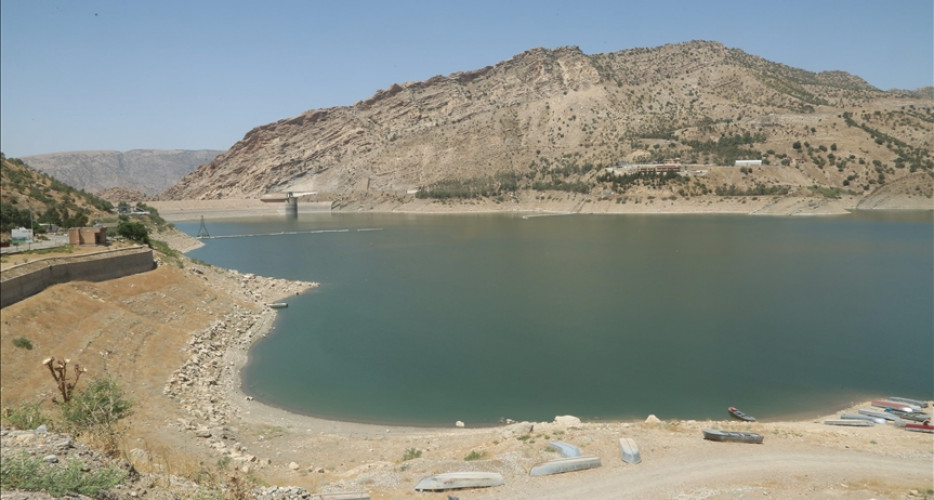
Peregraf
As intense summer heat builds in the Kurdistan Region, the mayor of Chamchamal issued an apology to the citizens of his district for the government’s failure to complete a drinking water project that was first announced eleven years ago.
"We tell the truth to the citizens, we apologize," Mayor Ramak Ramazan told Peregraf in an interview, adding that his office has written 77 letters to Sulaimani provincial officials and the Kurdistan Regional Government (KRG) Council of Ministers urging them to complete the Goptapa-Chamchamal water project.
"This summer will be hard and we can only provide water to the citizens for two hours every two weeks," Ramazan said, adding that the district will meet only 20 percent of his constituents’ water needs.
Chamchamal Water Director Jumaa Amin confirmed to Peregraf that this is the case, with water services expected to be provided even less frequently next month.
Once completed, the planned Goptapa-Chamchamal water project would provide water for up to 200,000 residents around Chamchamal, one of the poorest and hottest places in the Kurdistan Region.
The government has twice allocated money for the project, most recently in April when it announced $70 million in funding. Nevertheless, the project will take at least 900 days to complete once work starts, leaving residents in the lurch until then.
With Iraq and the Kurdistan Region suffering from prolonged drought conditions and increasingly feeling the effects of climate change and poor resource management, the problem is more urgent than ever.
Earlier this month, Erbil Governor Omed Khoshnaw warned that this summer would see widespread water shortages in the capital due to heat, climate change, and the unreliability of the Kurdistan Region’s electrical network.
"In the summer, it will be a big challenge to provide water to homes and to get rid of this year's water problems. We have budgeted for the creation of new wells and for solving technical problems," Khoshnaw said.
Kawa Abdulqadir, head of the New Generation Movement caucus in the parliament, agreed that the people of Erbil are in great danger of water shortages.
"It’s only the beginning of the summer season and water shortages have already arisen in many neighborhoods in Erbil and the government has not planned anything and has no solution so far," Abdulqadir said.
Officials in Erbil say that they plan to dig more than 130 new deep wells as a way to meet demand, but it could also negatively affect the performance of pre-existing wells by lowering groundwater levels even lower.
Hevidar Ahmed, an MP from the Kurdistan Democratic Party (KDP), said that wells only needed to be 80-meters deep in 1989, but that engineers must now drill down more than 700-meters in places like Qushtapa and Bahrka to reach the water table.
This is the result of poor management of both above and below ground, with natural geographer Halat Rashid telling Peregraf that "water has not been scientifically administered."
"Another reason for the lack of underground water is over-extraction and the lack of rain going through the ground, which is due to low rainfall, changes in rain patterns, and an increase in rain downpours that do not feed underground water sources," Rashid said, adding that the latest UN report on the subject found that only 40 percent of water that falls locally ends up in underground aquifers.
Approximately 40 billion to 50 billion cubic meters of water flow annually through the rivers in the Kurdistan Region, but Rashid said that much of it is not used properly.
He argued that more dams are necessary to ensure water for irrigation and urged the government to rework the system that allocates water to residential areas and for residents to use water only for necessary purposes, rather than recreation.
"The big problem is the administration, otherwise the water resources in the region will last for dozens of generations after us. The water resources in the Region are greater than in all the Arab countries, except the Nile, but you see that there are no water problems in those countries, which shows that we have water management problems," Rashid said.
The citizens of Chamchamal feel this acutely, with Mayor Ramazan saying that poor-quality water and reduced access will risk a humanitarian disaster and the spread of disease.